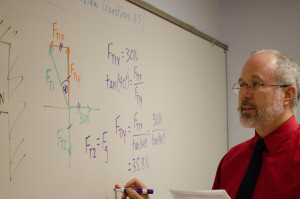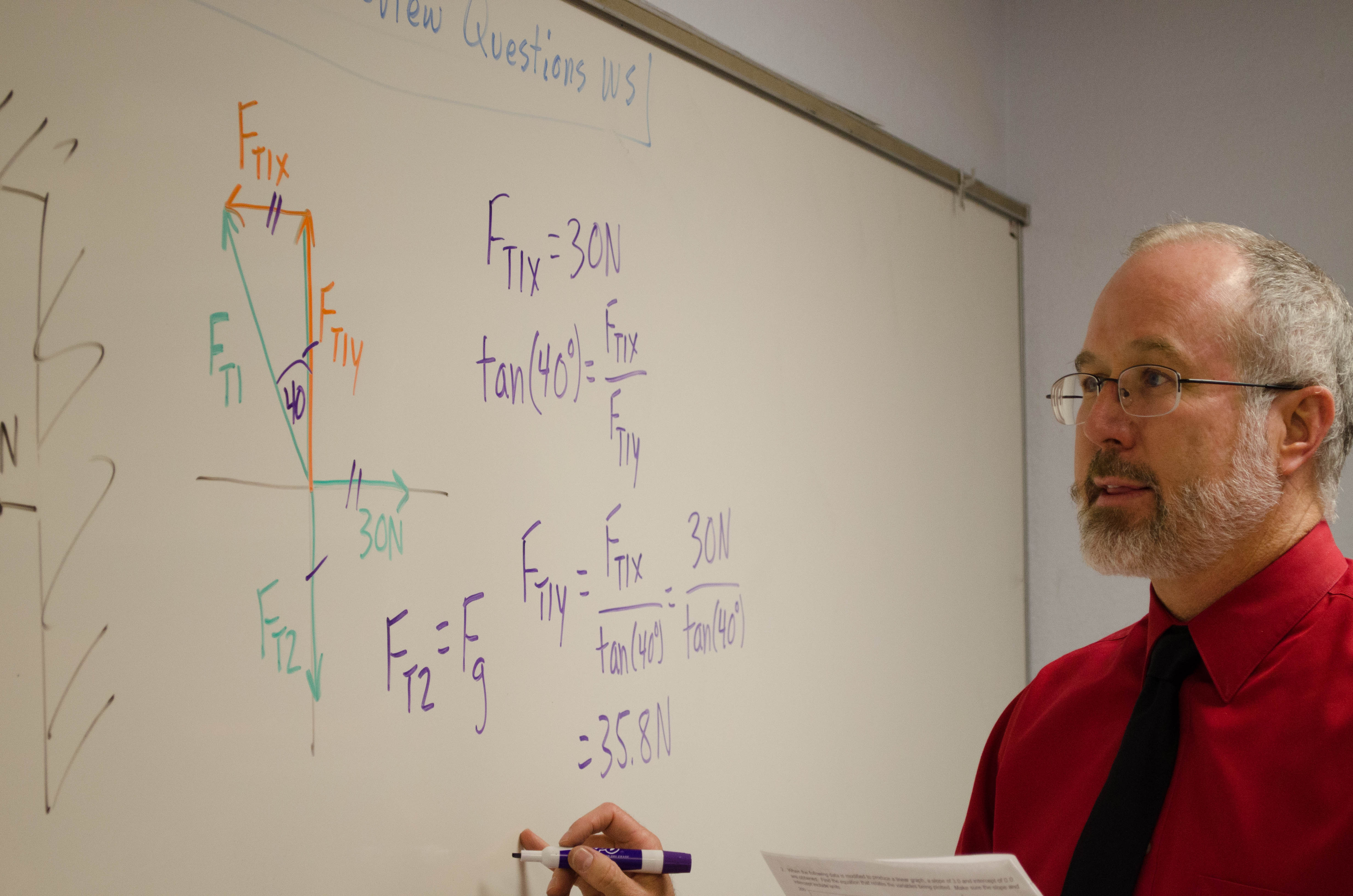By Rachel Neglia
 Tempe Preparatory Academy has hired a host of talented teachers in striving to effectively apply a holistic model of education. Although most people associate a “liberal education” with subjects like philosophy, literature, and history, however, the school has reaffirmed the important role of the sciences in a liberal curriculum, and has accordingly sought distinguished faculty to teach them.
Tempe Preparatory Academy has hired a host of talented teachers in striving to effectively apply a holistic model of education. Although most people associate a “liberal education” with subjects like philosophy, literature, and history, however, the school has reaffirmed the important role of the sciences in a liberal curriculum, and has accordingly sought distinguished faculty to teach them.
One notable science teacher is Dr. Thomas Hickernell, who has taught at TPA since 2000. Dr. Hickernell emphatically believes in the merits of a liberal education, saying that it leaves students “better prepared for life in general.” Most students do not hear about and could learn from his fascinating pre-TPA career.
For his undergraduate degree, Dr. Hickernell chose to study Physics (but fell only a half-credit short of also having a math major) at Pomona, a liberal arts college in California. He values the broad range of subjects he studied there, and especially when looking back on his past work experience with many different types of engineers, points out that “those who were educated liberally, those who had an appreciation and an understanding of music, those who had an appreciation and an understanding of language and philosophy, were better able to think of creative solutions to problems than those who were just trained as engineers or physicists.” In the end, Dr. Hickernell says that his degree was “more valuable than a university degree.”
“I had a dream for a while of being an oceanographer, and then I had a dream of being a veterinarian,” Dr. Hickernell says, “but always in the back of my mind was my fifth grade teacher’s interest in solar energy.” After he graduated from Pomona, Dr. Hickernell got his master’s and doctorate degrees from the University of Arizona in Optics, which has applications in solar energy. Unfortunately, “solar energy experimentation and research was at a very low level,” Doc says. “Strategic defense initiative money was very high and everybody was creating lasers to shoot down satellites and enemy planes… I was not so sure about helping to create weapons, but then I couldn’t get into the solar energy field, so I ended up getting a research position with a group in medical imaging.”
Dr. Hickernell worked on a team that developed surgical probes to help doctors detect cancerous tissue in lymph nodes during surgery. They could not get their product patented because “another group had created a probe with a structure similar to ours” ten years prior, but the product was still cutting-edge in its novel usage.
After graduate school, Dr. Hickernell worked for Motorola in developing surface acoustic wave filters, which use properties of piezoelectric crystals.“If piezoelectric crystals are stressed,” he says, “they will create, because of the molecular configurations, electric fields surrounding the crystal. But it works the other way as well; if you subject the crystal to an electric field, it will also stress.” The stressing of these crystals has applications to electronics. Ultimately, this research and development led to “sixteen or seventeen patents” that Dr. Hickernell signed.
How can aspiring scientists prepare for the future, according to Dr. Hickernell? “Enjoy learning, and learn all you can about all sorts of things — not just science.” Whether you’re the type that obsessively sketches out your future or “enjoys whatever life has to throw” at you, this plan is foolproof!
